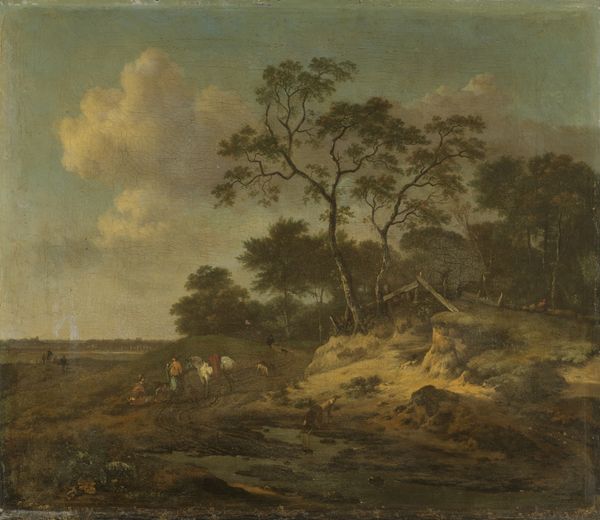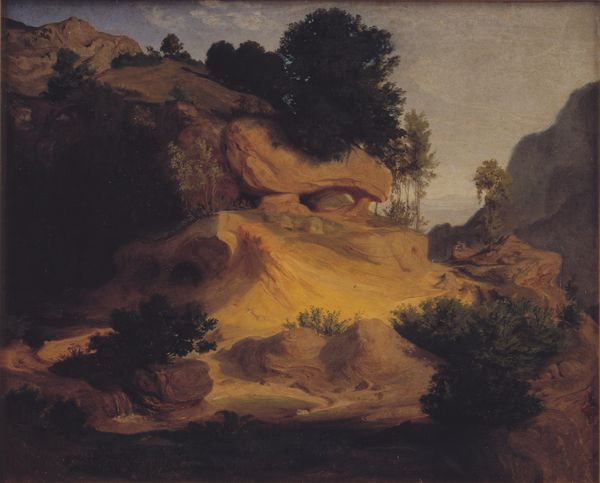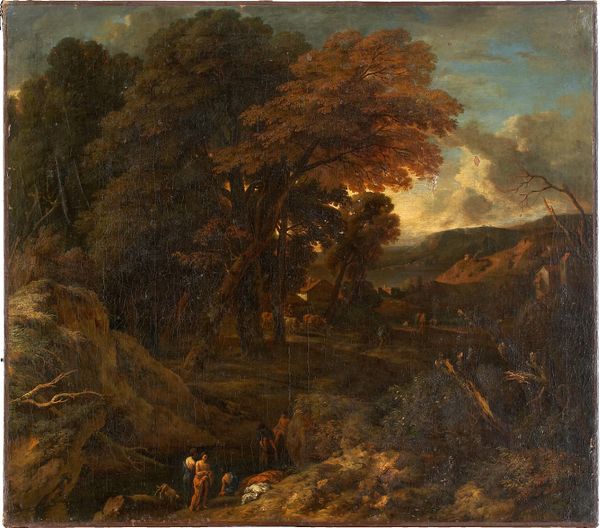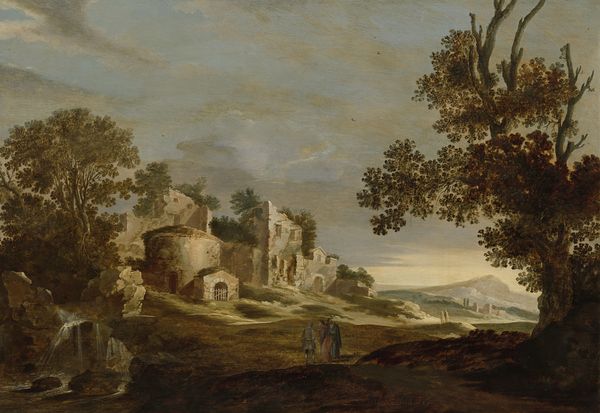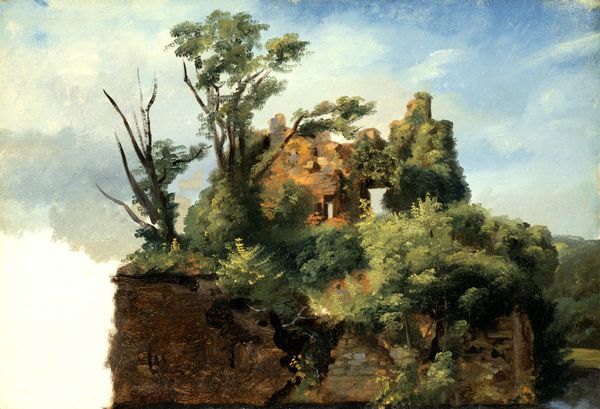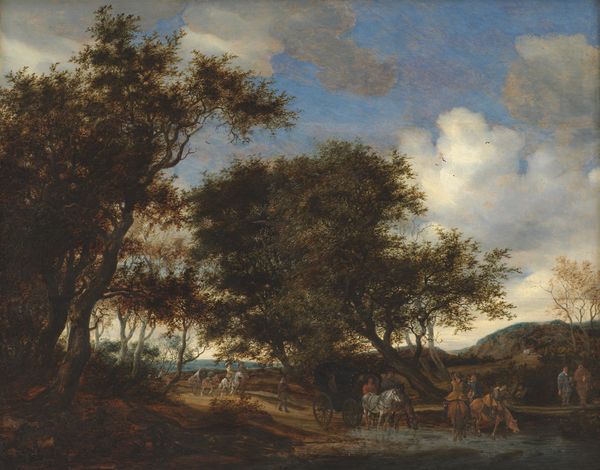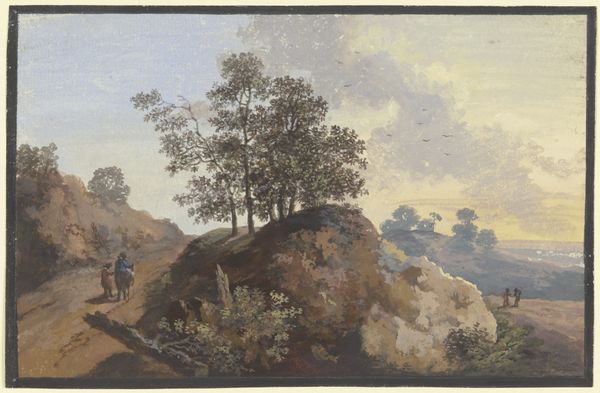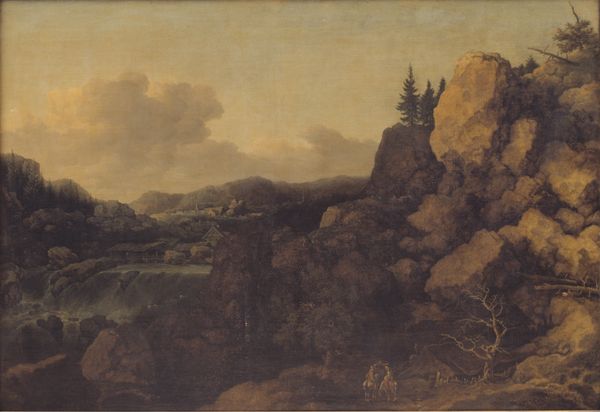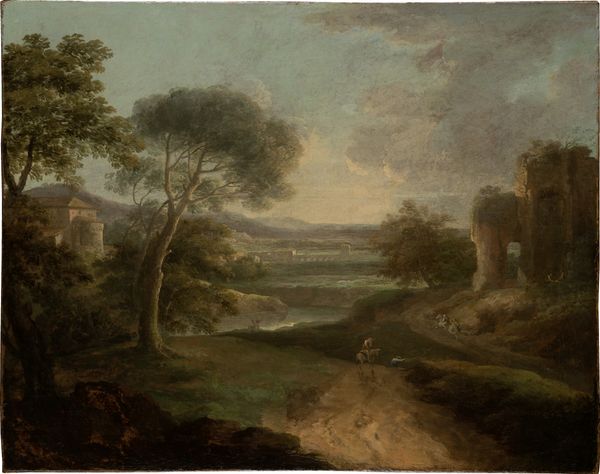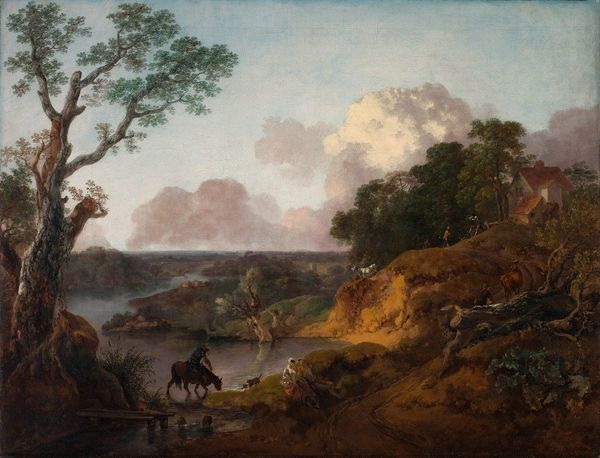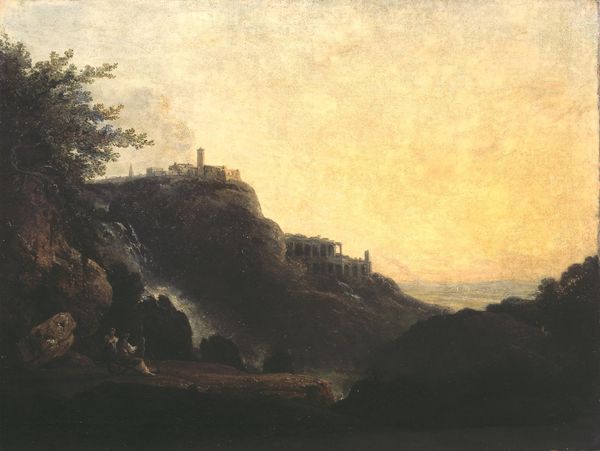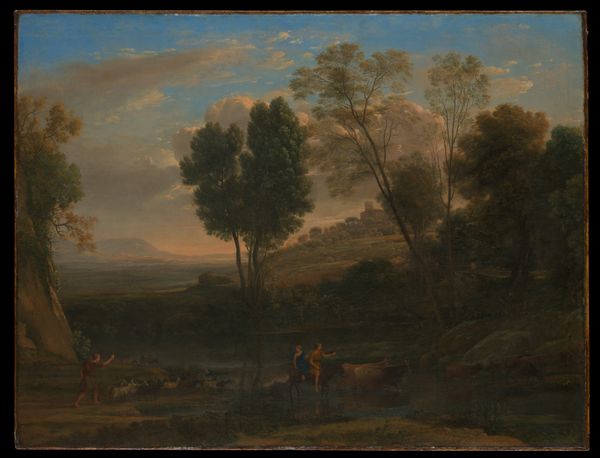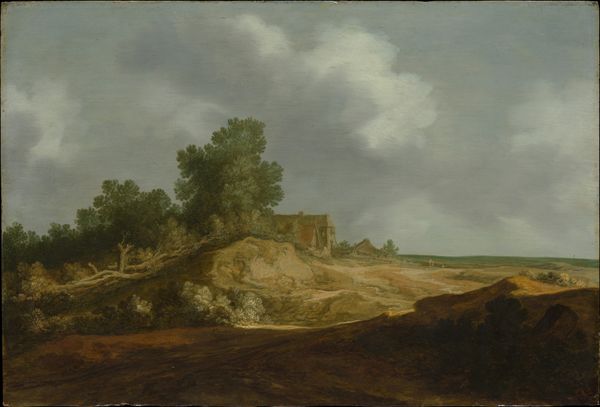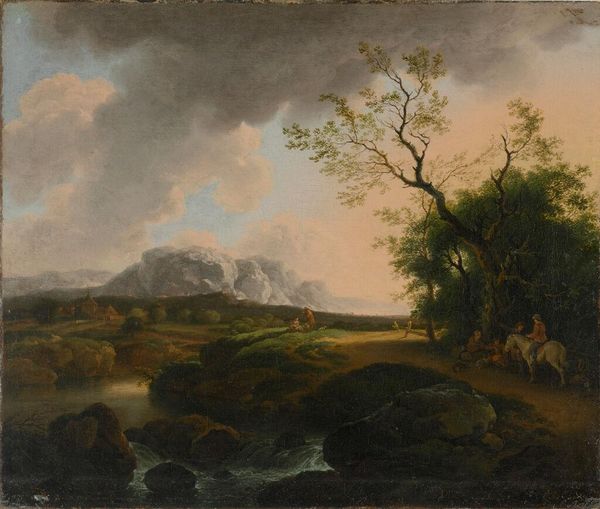
oil-paint
#
baroque
#
dutch-golden-age
#
oil-paint
#
landscape
#
oil painting
#
14_17th-century
#
genre-painting
#
realism
#
building
Dimensions: 33.2 x 33.9 x min. 0.9 cm
Copyright: Public Domain
Cornelis van Zwieten painted this oil on wood panel, "Landscape with Farm House on a Hill," sometime in the 17th century. It depicts a simple thatched farmhouse nestled into a sandy hill, a scene common in the Dutch countryside at the time. But what does it mean to represent rural life this way? The Dutch Golden Age saw an unprecedented rise in urban wealth and global trade. Artists like van Zwieten were part of a larger cultural movement to romanticize the countryside, creating an idealized vision of rural life that was simpler and more virtuous than the bustling cities. This image, with its humble dwelling and natural setting, speaks to the growing importance of the rural landscape in Dutch identity and cultural values. The rise of landscape paintings reflects a specific social and economic structure, tied to land ownership and the changing relationship of city and country. As historians, we look to sources like estate records, economic data, and literature of the period to understand the social forces behind these images. Art offers us a window into the values and beliefs of the people who created and consumed it.
Comments
No comments
Be the first to comment and join the conversation on the ultimate creative platform.
